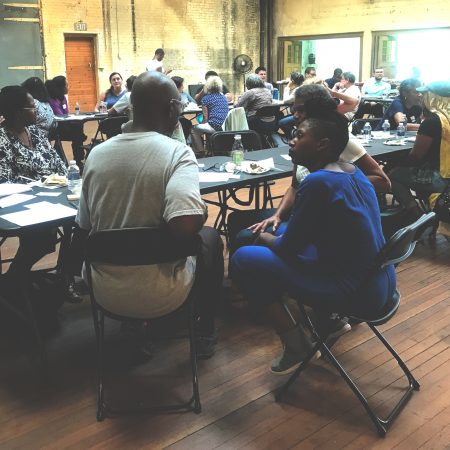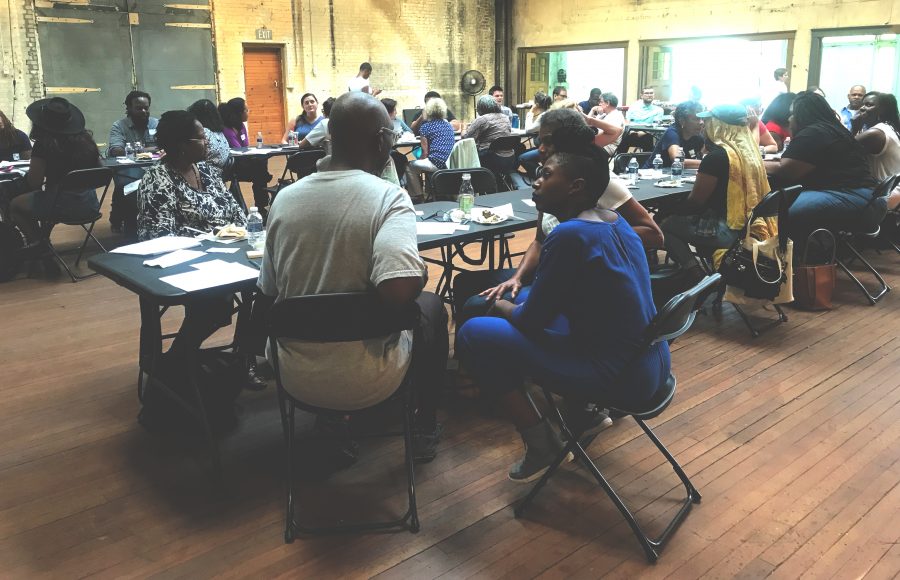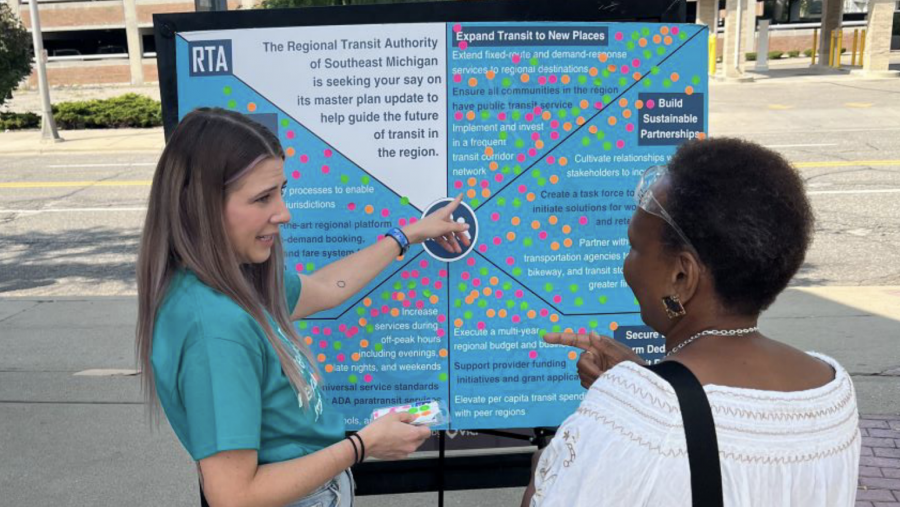It’s a story that sounds all-too-familiar to many in Michigan.
A father faces criminal charges after allegedly ignoring his teenaged son’s cries for counseling and instead buying him a high-powered gun as a Christmas present. The teen is accused of using the weapon to kill four people and wound more than half-a-dozen others at a local high school.
But this is not the case of Jennifer and James Crumbley, who were convicted of involuntary manslaughter after their son went on a deadly rampage at Oxford High School.
Instead it’s the start of a trial for Georgia resident Colin Gray, charged with second-degree murder because of a school shooting committed by his then-14-year-old son in 2024.
Criminal justice reporter Chamian Cruz is covering the trial for WABE public radio in Atlanta. She says the case echoes the circumstances surrounding the Crumbleys and Oxford High.
The following interview has been edited for clarity and length.
Chamian Cruz, WABE News: Right now jury selection is happening for the father of Colt Gray. He was a student at Apalachee High School who’s accused of fatally shooting two students and two teachers. His father was charged because he’s accused of gifting his son an AR-15 for Christmas the year before. And that was the gun that was allegedly used in the shooting.
Quinn Klinefelter, WDET News: It does sound like there’s similarities with the Crumbley case. Was the shooter targeting particular people? Did he just seem to be operating at random? How did it all happen?
CC: Authorities say that the year before the shooting happened, police went to Gray’s home and questioned him and his father about online threats that he had made about committing a mass shooting. And it’s alleged that even after the police spoke to them, the father bought that gun for his son.
Authorities have said that Colt Gray was able to hide the gun in his backpack, take it on the school bus. He just wrapped a poster around [the barrel, which was sticking out of his pack.]It doesn’t really seem like he targeted anyone in particular. School had just started, they were about a month into the new school year. And he had recently transferred to that school.
But we do know that he had told his parents that he was having mental health issues and he wanted help. He begged his parents to take him to a mental institution. But for one reason or another, he wasn’t getting that help. That’s when the shooting took place.
QK: Did he survive the shooting? Was he taken into custody?
CC: He did survive the shooting. He is at a juvenile detention center right now. But he is being charged as an adult and he’s facing 55 charges. Both him and his father have pleaded not guilty. And I do think it’s important to point out that the teenager is waiting for his father’s trial to be over. And then his attorneys have said that they’re interested in offering him a plea deal.
QK: In Michigan they had charged Crumbley’s father with involuntary manslaughter. Is it a similar charge there?
CC: Yes. The father is facing 29 charges and they include second degree murder, involuntary manslaughter, reckless conduct, and child cruelty.
QK: You said jury selection is just getting underway. But there’s often preliminary hearings and other filings where evidence is revealed. Sometimes you get an idea of how attorneys might argue a case. Do you get any sense of how they might defend the father in this shooting? In Michigan they had said that James Crumbley, the father of the Oxford High shooter, really had no inkling of what his son might do or was capable of doing. Is there a similar argument being made in the Georgia case?
CC: There was one motion that focused on statements the father made to police after his son was arrested. What came to light from that was that his son had written an apology letter before the shooting took place. And the father had also sent him text messages saying, “Don’t do it.” So he was aware of what was happening.
QK: Has the prosecutor or the judge there referenced the Crumbley case? Something akin to, “We’re charging this particular father in this way because of the precedent set by the trial in Michigan?”
CC: They haven’t specifically brought up the case, no.
QK: What’s the reaction been among people in the local area in Georgia in terms of whether or not the father should be charged?
CC: I do think that people in the community here feel like the father should be charged because he didn’t secure the weapon. The biggest thing that has happened after the shooting is that lawmakers have passed a lot of bills trying to beef-up school security. There are metal detectors now at the schools. And they’re trying other ways to make the schools safer, to make sure that guns aren’t able to be brought in.
They only charged the father in this case. I know that he and Colt Gray’s mom were divorced and the son was living with the father at the time of the shooting, but the mom called the school before the shooting happened to warn them. Somehow she knew that this was happening or going to happen.
QK: The mother actually tried to warn the school that the son was going to do the shooting?
CC: I think that Colt Gray sent a text message to her letting her know that he was going to do it. The biggest thing is that he wanted help at the time. He had told his parents he wanted to go to counseling or be taken to a mental institution. And he didn’t get that mental health help. So, like the Michigan case, the parents were aware that he was struggling but didn’t address it.


 Free with an RSVP
Free with an RSVP


























